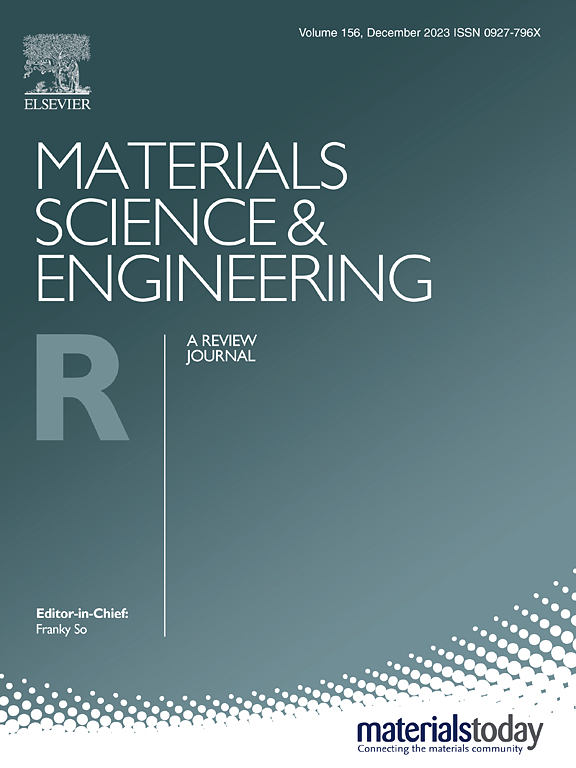Evaluating lead-based vs. lead-free perovskites for environmentally sustainable indoor photovoltaics
IF 31.6
1区 材料科学
Q1 MATERIALS SCIENCE, MULTIDISCIPLINARY
引用次数: 0
Abstract
Indoor photovoltaics (IPVs) based on halide perovskites (HPs) and derivatives (HPDs) hold great promise for powering the vast infrastructure of Internet-of-Things (IoT) smart devices. While lead-based IPVs deliver cutting-edge performance, environmental concerns have spurred research into lead-free alternatives. However, the environmental sustainability of these IPV technologies remains underexplored, with the current lead-based versus lead-free debate confined to elemental considerations, overlooking life-cycle impacts and practical IPV requirements. This study presents the first comparative life-cycle assessment (LCA) addressing the lead-based vs. lead-free HP/HPD IPV dilemma, examining the environmental sustainability of absorbers, precursors, functional layers, and fabrication steps. A modelling framework is introduced to evaluate the net environmental gains (NEGs) of IPVs compared to the conventional battery-centric approach for powering smart devices. Our findings suggest that lead-free HP/HPD IPVs are not inherently more eco-friendly than their lead-based counterparts. We demonstrate that Pb- and Sn-based IPVs can achieve NEGs after just 3–4 weeks and 4–6 weeks, respectively, significantly outperforming mainstream IPVs. In contrast, the NEGs of Sb- and Bi-based IPVs align with mainstream IPVs, limiting their viability unless efficiencies increase to ∼40 %. Key strategies to enhance the eco-friendliness of HP/HPD IPVs and policy considerations for Pb-based IPVs in IoT applications are outlined.
评估铅基钙钛矿与无铅钙钛矿在环境可持续室内光伏发电中的应用
基于卤化物钙钛矿(HPs)及其衍生物(hpd)的室内光伏(IPVs)在为物联网(IoT)智能设备的大量基础设施供电方面具有很大的前景。虽然铅基IPVs具有先进的性能,但环境问题促使人们研究无铅替代品。然而,这些IPV技术的环境可持续性仍未得到充分探索,目前关于铅基与无铅的争论仅限于基本考虑,忽视了生命周期影响和实际IPV要求。本研究提出了第一个比较生命周期评估(LCA),解决了铅基HP/HPD IPV与无铅HP/HPD IPV的困境,检查了吸收剂、前体、功能层和制造步骤的环境可持续性。与传统的以电池为中心的智能设备供电方法相比,引入了一个建模框架来评估IPVs的净环境收益(neg)。我们的研究结果表明,无铅HP/HPD IPVs并不比含铅的同类产品更环保。我们证明基于Pb和sn的IPVs分别可以在3-4周和4-6周后达到neg,显著优于主流IPVs。相反,基于Sb和bi的IPVs的neg与主流IPVs一致,限制了它们的生存能力,除非效率提高到~ 40 %。概述了增强HP/HPD IPVs生态友好性的关键策略以及物联网应用中基于pb的IPVs的政策考虑。
本文章由计算机程序翻译,如有差异,请以英文原文为准。
求助全文
约1分钟内获得全文
求助全文
来源期刊

Materials Science and Engineering: R: Reports
工程技术-材料科学:综合
CiteScore
60.50
自引率
0.30%
发文量
19
审稿时长
34 days
期刊介绍:
Materials Science & Engineering R: Reports is a journal that covers a wide range of topics in the field of materials science and engineering. It publishes both experimental and theoretical research papers, providing background information and critical assessments on various topics. The journal aims to publish high-quality and novel research papers and reviews.
The subject areas covered by the journal include Materials Science (General), Electronic Materials, Optical Materials, and Magnetic Materials. In addition to regular issues, the journal also publishes special issues on key themes in the field of materials science, including Energy Materials, Materials for Health, Materials Discovery, Innovation for High Value Manufacturing, and Sustainable Materials development.
 求助内容:
求助内容: 应助结果提醒方式:
应助结果提醒方式:


